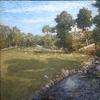The Huntington and LACMA Jointly Acquire Donald Judd Prototype Chairs
- SAN MARINO AND LOS ANGELES, California
- /
- February 12, 2017
The Huntington Library, Art Collections, and Botanical Gardens and the Los Angeles County Museum of Art (LACMA) announced today their joint acquisition of two prototype chairs (1979–80) made by American artist Donald Judd (1928–1994). The chairs will join a Judd prototype desk (1978) that LACMA acquired in 2011, thus uniting a suite that will be co-owned by the two institutions. The group will go on view at The Huntington in 2018.
"We're delighted to join forces with LACMA in bringing these seminal works to the public," said Kevin Salatino, Hannah and Russel Kully Director of the Art Collections at The Huntington. "We already co-own an icon of modern design with LACMA—Arthur Mackmurdo's Century Guild Dining Chair of 1883—and now will share these more recent masterworks of modernism. Along with The Huntington's important holdings of furniture by Frank Lloyd Wright, Greene & Greene, and Charles Rohlfs, the Judd suite extends a continuum of progressive design and theory, while at the same time eliding the categories of furniture and sculpture. I thank Michael Govan for his proposal to share this important acquisition with The Huntington, and Kelvin Davis, who is a Trustee of LACMA and sits on the Board of Overseers of The Huntington, for his generosity in supporting both the 2011 and 2016 acquisitions."
Though widely recognized for his sculpture, Judd’s furniture—reductive, free of extraneous detail, and informed by influences ranging from the Shakers to De Stijl designer Gerritt Rietveld—is less well known. The newly acquired chairs were built as part of his adaptive reuse of historic buildings in Marfa, Texas, where he converted largely abandoned buildings into living spaces, studios, and museum galleries.
Unable to find furniture locally that suited his architecture, he decided to make his own out of pine, including the newly acquired chairs and desk, which were later put into commercial production in a variety of fine woods. Their design relates to the formal logic of Judd’s famous box sculptures, set at perpendicular angles to create the elements of back, seat, and legs.
“As one of the most important American artists of the 20th century, Judd plays a crucial part in the dialogue between art and design in LACMA’s collection,” said Michael Govan, LACMA CEO and Wallis Annenberg Director, who participated in a public talk with Donald Judd’s son Flavin Judd at LACMA today that touched on the acquisition. “Furniture in LACMA’s collection is often not just about formal design, but about ideas—the global aesthetic philosophies of the Arts and Crafts Movement to the revolution in thinking about domestic living embedded in the furniture of R.M. Schindler. The Judd desk and chairs are a landmark addition to that. It is a coup for Los Angeles and all the more relevant to be shared with The Huntington’s exceptional American collections. Originally designed for his children, the desk and chairs represent the very beginnings of Judd’s thinking about furniture as well as about how he could make his young children feel comfortable in his unusual home in a small West Texas desert town.”

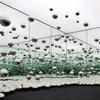
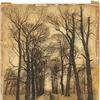
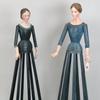



![Peter Paul Rubens (Flemish, 1577–1640), After Titian (Tiziano Vecelli) (Italian [Venetian], c. 1488–1576), Rape of Europa, 1628–29. Oil on canvas, 71 7/8 x 79 3/8 in. Peter Paul Rubens (Flemish, 1577–1640), After Titian (Tiziano Vecelli) (Italian [Venetian], c. 1488–1576), Rape of Europa, 1628–29. Oil on canvas, 71 7/8 x 79 3/8 in.](/images/c/e2/2e/Jan20_Rape_of_Europa100x100_c.jpg)


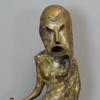

![Offering a Truce [Bested], 1895, is estimated to sell for between $1,300,000 and $1,800,000 on March 22, 2014, for The Russell: An Exhibition and Sale to Benefit the C.M. Russell Museum. Offering a Truce [Bested], 1895, is estimated to sell for between $1,300,000 and $1,800,000 on March 22, 2014, for The Russell: An Exhibition and Sale to Benefit the C.M. Russell Museum.](/images/c/a8/20/Dec10_Offering_a_Truce__Bested_300dpi100x100_c.jpg)


